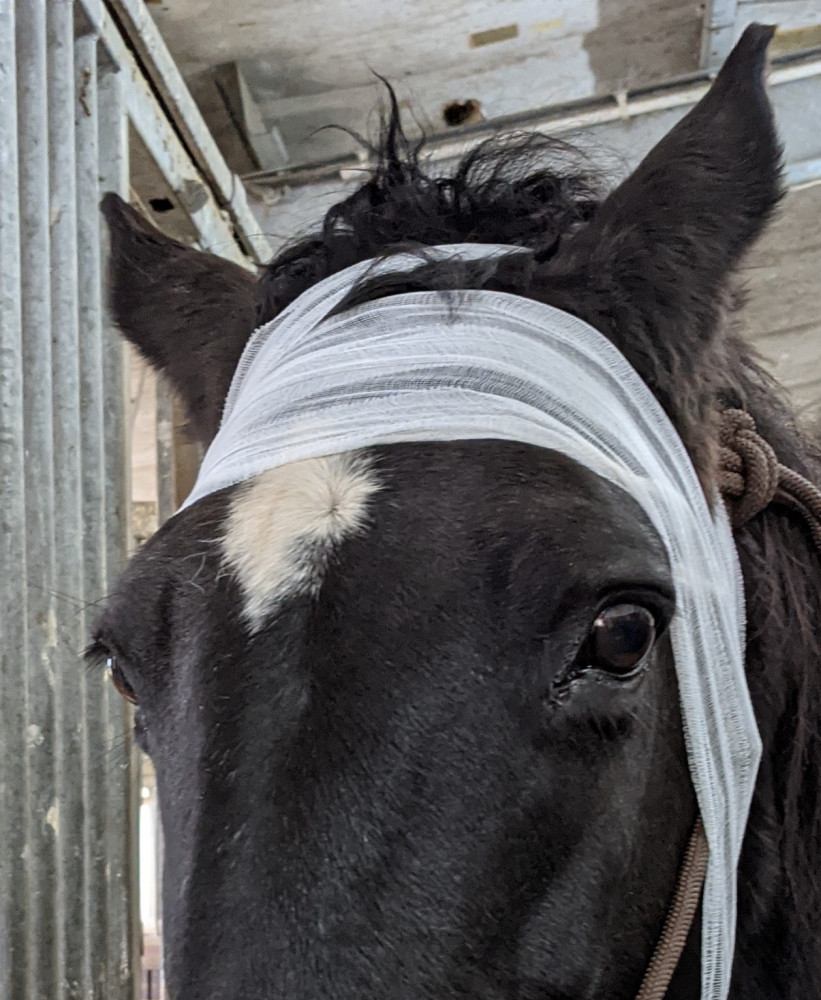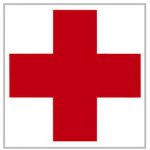Horses with Liver Disease – Origins and Treatment
 For a long time we know that our liver is the base for a healthy organism – and due to this it has the same essential significance for horses!
For a long time we know that our liver is the base for a healthy organism – and due to this it has the same essential significance for horses!
If the base is damaged this means bad consequences. In general vets and horse owners have to deal with the problem that they do not notice an insufficiency of the liver in its first state. Firstly horses do not have any pain what makes it really difficult to notice a disease of the liver. Vets only recognize the disease in an advanced stage and only if they check the result of a blood screening. At that time it often already is too late for a successful medical treatment of the disease: not only because of the advanced stage but also because generally it is difficult to find a helpful therapy for a liver disease. Statistics about horses with a liver disease show that not only old and horses with a weak immune system have this disease but there is also a tendency that more and more young horses suffer from a weak liver. Undoubtedly this is a reason why horse owners and rider should inform themselves about this topic …
Liver – important functions for the whole body
The liver is the central area which controls the metabolism. All nourishment comes to it because there it becomes transformed to new combinations which are endogenous. Then the liver gives the combinations to the rest of the body. It does this continually so that the body has enough of nourishment at any time. This shows that the liver participates at all metabolic processes which deal with carbohydrates, proteins, fat, vitamins and trace elements. At the same time it has the function to save these important elements. Nevertheless via dirty nourishment, skin and water also exogenous materials can enter the body so that poison circulates in the organism. Additionally toxic materials result if there is an overuse of the body or in the course of another disease. Inflammations, infectious disease, stress and overuse of the body cause so called radicals. The liver transforms them into combinations which are harmless for the body. Then they can reach the bile or kidney and are excreted out of the body. In cases of wrong feeding the intestinal flora becomes disturbed what causes endotoxins. The liver also transforms these materials what means that he cleans the body. If the liver needs to transform too many toxic materials it becomes overused and this often ends in an insufficiency of the liver. This can happen if the following materials enter the body of the horse:
- Poisonous plants (come from pastures with too many fertilizers and pesticides)
- Protective liquid for wood
- Molds (in hay or straw)
- Old water from a rusty fountain
Additionally nourishment with too many proteins can cause a weak liver: it needs so much energy for transforming the proteins so that it does not have enough capacities for transforming other toxic materials.
Prevention of a liver disease
Riders and horse owners need to prevent their horses. They can easily do so if they keep all toxic material far away from their horses. Due to this hay and straw needs to be free of any molt and dust. Furthermore it is important that horses regularly have an anthelmintic therapy (2-4 per year). Riders need to control if any poisonous plants grow on the pasture and if they do so they have to be removed. Moreover horses should only eat nourishment which is free of chemical products. Referring to this, riders must not use chemical protection materials for wood (for example in the box of the horse) because horses easily lick on it. In general one must try to use synthetically materials as less as possible because all these elements strain the function of the liver.
Diagnosis for a liver disease
An insufficiency of the liver is a dangerous disease because it is really difficult to diagnose it in an early stage. Symptoms often stand for several diseases so one cannot say that a liver disease has some typical symptoms. At first one can also think about a possible lack of certain aliments. Nevertheless horse owners need to think about a possible disease of the liver if the horse has one of the following symptoms:
- Sluggishness and lassitude of the horse
- Rheumatic complaint
- Lack of appetite
- Lack of activity
- Apathetic behavior
- Problems with skin and hair
- Yellow color of the eye mocusa
- Punctual bleeding on mucous membranes
- In some cases the urine becomes dark
If a horse provides one of these symptoms the horse owner or rider needs to contact a vet. He will make a screening of the blood so that he can see the functionality of the liver. Researchers distinguish between a primary and a secondary disease of the liver: a primary disease means that the liver is concerned in a direct way like for example through an infestation by parasites. A secondary disease means a disease which is caused through a previous disease like Laminitis, Lumbago, poisoning, infections or a wrong use of medicine. In general it is really difficult to deal with a secondary disease. It is much easier to deal with a primary disease of the liver because horse owners can stop a wrong way of feeding. In opposite to this one can hardly aid the horse if it has a secondary disease but only hope that the liver is strong enough to get back its whole functionality and support it.
Possible therapies
Undoubtedly the best way to deal with a disease is to know its origins. Riders and horse owners need to keep off the horse any types of toxic materials. In general vets advise not to use too much of chemical medicine: the liver must transform them so that it loses energy for its regeneration. In cases of a liver disease often there is lack of certain nutrients what causes an imbalance. If you want to support the functionality of the liver you can feed these nutrients and recreate a balanced situation. This liver therapy avoids a further damage of liver cells. Additionally it helps to offer a lot of zinc and vitamin B as well as certain amino acids combined with zinc: they clean the intestine from endotoxins so that they undertake the work and function of the liver. Furthermore especially artichokes help to detoxify the liver and support the functionality of the bile. One can easily buy artichoke juice in every health food store. Moreover silymarin which is a natural product taken from the milk thistle stabilizes the cell membranes of the liver. Due to this one can water the milk thistle for one night or otherwise just feed it freshly. Generally it may help to feed cells of yeast: they stabilize the intestinal flora so that they work against a dysbiosis which often is the reason for liver disease. Finally herbs and linseed support the digestion and due to this the detoxification of the body.
Tips for a right feeding for horses with a liver disease
A rider or horse owner who has a horse with a disease of the liver needs to change the nourishment for the horse. In any case this individually needs to be arranged with a vet. In an acute situation of a liver disease generally one needs to renounce any pellets as well as old hay or straw. Riders can feed small portions of mash (4-5 portions per day) what supports the intestinal flora and the appetite of the horse. Basically vets advise not to feed silages (even if the horse is healthy): it offers a lot of clostridium what causes dysbiosis and this often results in a liver disease.
Surf tips:
- Horses with a Lack of Selenium
- Aortic rupture – sudden horse death
- Horses with Laminitis – Origin and Therapy
—All statements without guarantee—


9 Comments
Comments are closed.